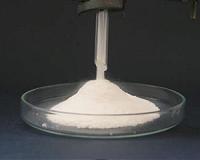 |
Paris (AFP) April 15, 2011 A group of Japanese doctors on Friday urged workers at the Fukushima nuclear plant to have their blood stemcells stored as a safeguard should they be exposed to life-threatening levels of radiation. The technique entails storing so-called autologous peripheral blood stem cells (PBSCs), which are immature cells that differentiate into blood cells. PBSC transplants are often used in cancer treatment to boost depleted blood cell counts among patients who have had radiotherapy to destroy a tumour. In a letter to the British medical weekly The Lancet, cancer specialists at four Japanese hospitals argued that it made sense to store blood from the hundreds of workers battling to save the Fukushima Daiichi nuclear plant from catastrophe. These teams are working in extremely hazardous conditions, removing irradiated water from the site and trying to cool overheated fuel in three crippled reactors, they said. "The process to completely shut down the reactors is expected to take years. The risk of accidental radiation exposure will thus accumulate for the nuclear workers and banking of their PBSCs will become increasingly important," they added. The letter's five authors are led by Tetsuya Tanimoto of the Cancer Institute at the Japanese Foundation for Cancer Research and Shuichi Taniguchi of the Toranomon Hospital, both in Tokyo. The doctors complained Japan's nuclear industry resisted storing the workers' PBSCs because it was fearful of what this could do its reputation. "The most important mission is to save the nuclear workers' lives and to protect the local communities," the letter said. "Such an approach would be the industry's best defence: if a fatal accident happened to the nuclear workers, the nuclear power industry of Japan would collapse."
Share This Article With Planet Earth
Related Links Space Technology News - Applications and Research
 Material Devloped To Remove Radioactive Contaminants From Drinking Water
Material Devloped To Remove Radioactive Contaminants From Drinking WaterRaleigh NC (SPX) Apr 14, 2011 A combination of forest byproducts and crustacean shells may be the key to removing radioactive materials from drinking water, researchers from North Carolina State University have found. "As we're currently seeing in Japan, one of the major health risks posed by nuclear accidents is radioactive iodide that dissolves into drinking water. Because it is chemically identical to non-radioactiv ... read more |
|
| The content herein, unless otherwise known to be public domain, are Copyright 1995-2010 - SpaceDaily. AFP and UPI Wire Stories are copyright Agence France-Presse and United Press International. ESA Portal Reports are copyright European Space Agency. All NASA sourced material is public domain. Additional copyrights may apply in whole or part to other bona fide parties. Advertising does not imply endorsement,agreement or approval of any opinions, statements or information provided by SpaceDaily on any Web page published or hosted by SpaceDaily. Privacy Statement |